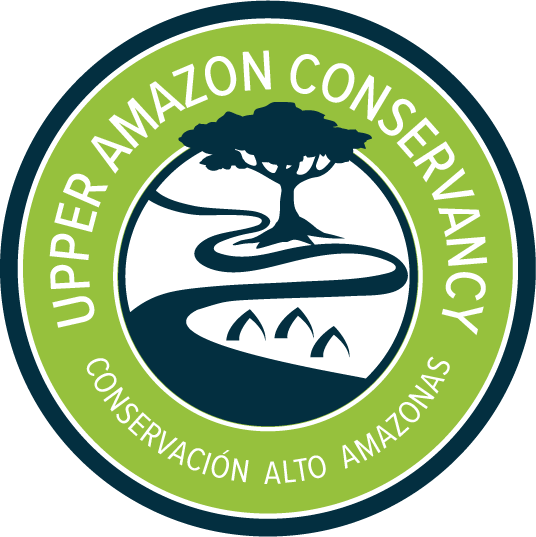Raising Local Awareness of Road Impacts
Recent fieldwork focused on raising awareness of an illegal road and its potential impacts among indigenous communities of the Ucayali and Yurua rivers.
Over the past several months, UAC has been visiting the remote communities whose lands will be impacted by the Nueva Italia—Puerto Breu, Yurua road if construction is allowed to continue. The work aims to ensure that local people understand potential impacts of the road and can make an informed decision about whether to support or oppose it.
In addition to providing information on the construction status and associated deforestation, our role has been to facilitate discussions among the communities and their leaders, who meet infrequently due to the distance between villages and extremely high prices for gasoline to power dugout canoes.
The road is already under construction from the Nueva Italia side by loggers utilizing tractors and with financial support from land traffickers. Settlers from Peru’s central jungle region are arriving en masse to clear intact forest to plant crops, mainly coca for the drug trade. Construction continues despite complete disregard for Peruvian and international laws, including permitted approval from the Peru government, environmental and social impacts studies, or consultation with the local indigenous communities who will be impacted.



Our education campaign is focused on the 16 native communities of the Yurua region who will be impacted on the road. We are also working with the Brazilian community of Apiwtxa which is located on the proposed road path. Apiwtxa is a leader of indigenous conservation in Acre, and shares a deep concern for the road and potential impacts on the surrounding forest and tribes who depend on them.
The communities to be impacted by the road are among the most remote in the Peruvian Amazon and access to information is limited. In fact, before our visits most people were unaware that the road was under construction and that migrant farmers were already using it to settle not far from their communal lands.
The large majority of local people expressed concern with the road and many are outraged that the government is allowing its construction despite not consulting them. Among the most important results of the meetings was the decision to schedule a congress among all Yurua communities and Apiwtxa to continue the discussion and develop a formal document describing their concerns to present to authorities.
While UAC is providing information and facilitating meetings and assemblies, the discussions are led by leaders of the Yurua’s three indigenous associations: the Yurua indigenous federation, ACONADIYSH, the Yurua Communal Conservation Concession, and the Environmental Association of the Community of Dulce Gloria. UAC has partnership agreements with each association to support various activities related to the road, vigilance training and community planning.
In addition to supporting the Yurua communities and its associations, we also support the Ucayali’s regional indigenous federation, ORAU. In April, we traveled with representatives from Ucayali’s regional indigenous federation, ORAU, to the community of Tumbuyo located near Nueva Italia to attend a meeting about the road with members of the Tahuania district’s indigenous federation, CODECONADIT. We hope that our work to inform and organize our indigenous partners will result in dialogue between the tribes and the government about the road and, ultimately, respect for their territorial rights.



